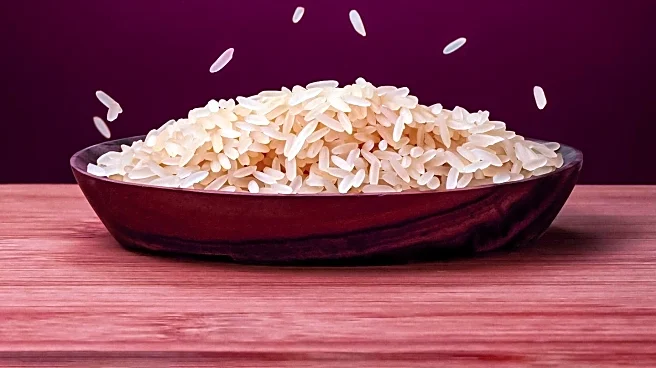What is the story about?
What's Happening?
A study has revealed that rice bran peptides can significantly improve cognitive health and gut microbiota stability in aging mice. Administered orally, these peptides were found to enhance survival rates and improve various health markers, including bone mass and organ function. The peptides modulate senescence traits, reducing age-related hair loss and improving muscle strength and balance. They also enhance gut microbiota diversity, which is crucial for maintaining cognitive function. The study highlights the peptides' ability to downregulate pro-inflammatory pathways, thereby alleviating neuroinflammation and improving cognitive abilities.
Why It's Important?
This research is pivotal as it suggests a potential dietary intervention for age-related cognitive decline, a growing concern in the U.S. with an aging population. By improving gut microbiota and reducing inflammation, rice bran peptides could offer a natural approach to enhancing cognitive health and longevity. This could lead to new dietary supplements or functional foods targeting older adults, potentially reducing healthcare costs associated with neurodegenerative diseases. The findings may also influence public health policies and dietary recommendations aimed at promoting healthy aging.
What's Next?
Further studies are needed to confirm these findings in humans and explore the mechanisms by which rice bran peptides exert their effects. Clinical trials could assess the efficacy and safety of these peptides as a dietary supplement for cognitive health. Researchers may also investigate the potential for these peptides to prevent or mitigate other age-related conditions. The food industry might explore the development of products containing rice bran peptides, tapping into the growing market for anti-aging and cognitive health solutions.
Beyond the Headlines
The study underscores the importance of gut health in cognitive function, highlighting the gut-brain axis as a key area of research. This could lead to a paradigm shift in how cognitive health is approached, emphasizing the role of diet and microbiota. Ethical considerations regarding the use of animal models in research must be addressed, ensuring humane treatment and accurate translation of findings to human health. The cultural acceptance of rice bran as a traditional food may facilitate its integration into Western diets.

















